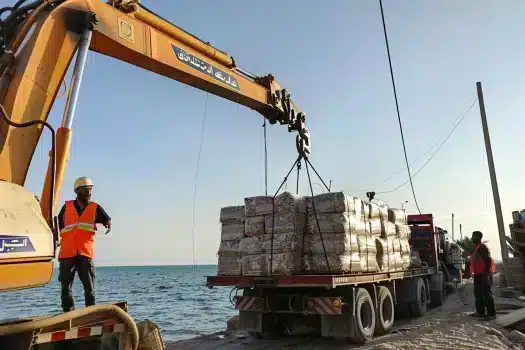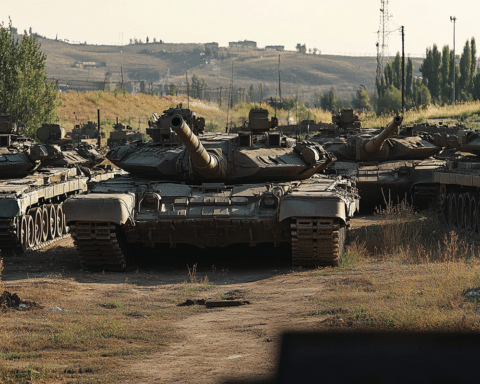In northern Gaza, the specter of famine looms large as Israel continues its military operations, striking at the heart of the territory’s ability to sustain its population. A report released on Monday paints a grim picture of the situation, with 70% of the population in northern Gaza facing catastrophic hunger. The escalation of conflict threatens to push half of Gaza’s total population to the brink of starvation, signaling an urgent humanitarian crisis that demands immediate global attention.
The Integrated Food Security Phase Classification (IPC), a coalition of more than a dozen U.N. agencies, aid groups, and governments, has sounded the alarm. It reports that nearly 677,000 people in Gaza are experiencing the highest level of catastrophic hunger, a situation characterized by extreme food scarcity and critical levels of acute malnutrition. This crisis is particularly severe in the north, where outright famine is projected to strike anytime between now and May. The European Union’s top diplomat has described the impending famine as “entirely manmade,” condemning the use of starvation as a weapon of war.
Amidst these dire warnings, Israeli forces launched another raid on the Gaza Strip’s most prominent hospital early Monday, alleging that Hamas militants had used the facility to regroup and launch attacks. The operation at Shifa Hospital has drawn criticism for endangering civilian lives, with Palestinian officials reporting that tens of thousands have sought refuge within its compound. The Israeli military contends that the raid was necessary to neutralize Hamas militants, including a senior commander alleged to be coordinating the protection of aid convoys.
This latest military action comes on the heels of Israel’s increased scrutiny over the flow of humanitarian aid into Gaza. Despite assurances from the Israeli government that there are no limits on aid entry, aid groups, and international observers decry the slow and inadequate delivery of assistance by air and sea. The call for opening all roads for aid into northern and central Gaza grows louder as the distribution of assistance becomes increasingly challenging amidst ongoing hostilities.
The unfolding tragedy in Gaza, with entire neighborhoods obliterated, and a population on the verge of famine, underscores the urgent need for a coordinated international response. The World Food Program’s acting country director for the Palestinian territories, Matthew Hollingworth, has highlighted the unprecedented speed at which this crisis has escalated, marking Gaza as the site of the most significant number of people facing imminent famine today.
As the conflict persists, the international community must grapple with the immediate need to alleviate human suffering and the longer-term challenge of addressing the root causes of such crises. The situation in Gaza serves as a stark reminder of the devastating impact of war on civilian populations and the imperative of prioritizing humanitarian aid and conflict resolution efforts.
The crisis in Gaza is a harrowing testament to the human cost of conflict. It calls for immediate action to prevent further loss of life and to forge a path towards peace. The words of EU foreign policy chief Josep Borrell resonate, emphasizing that it is within Israel’s power to facilitate more aid. As the international community watches, the hope remains that compassion and reason will prevail, opening the way for much-needed humanitarian relief and, ultimately, a resolution to the conflict.




